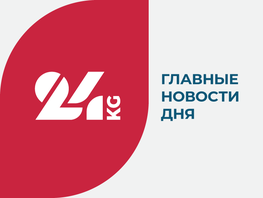Economic crisis and the difficult geopolitical situation in the world forced the countries of the Eurasian Economic Union (EAEU) to reconsider the basis of work. First of all, this affected food security. Due to rising global food prices and supply chain disruption, the EAEU countries are facing record inflation and a food access problem.
Member of the Board (Minister) of the Eurasian Economic Commission (EEC) in charge of Industry and Agro-Industrial Complex Artak Kamalyan, in an interview with 24.kg news agency, told how to find a balance between protection of domestic markets and the opportunity to make money on import substitution.
—General principles and approaches to ensure food security have been approved in the EAEU. Why are they useful to ordinary citizens?
— Yes, in 2021 we adopted a joint document that enshrined the intention to ensure food security as the key approaches of the countries of the Eurasian «Five». This should be done through domestic production, mutual trade and reduction of dependence on imports of material and technical resources for the agro-industrial complex.
Such an agreement is an important stimulus for the development of cooperation on improving the efficiency of production, selection and seed production, livestock breeding, state support for agriculture and development of modern technologies.
In addition, in case of force majeure situations, our countries will ensure interaction on mutual prompt deliveries issues.
Artak Kamalyan
— But many countries of the Union have restricted the export of products to protect their citizens. How to ensure overall food security in this case? What is the role of the EEC in the process?
— The fundamental principle of a coordinated agro-industrial policy, laid down in the Treaty on the EAEU, is the effective fulfillment of the resource potential of the states to meet the needs of the common agricultural market. One of the tools for implementation of this task is the system of forecasting by the balance method.
During the COVID-19 pandemic, the EAEU states introduced restrictive measures to protect, first of all, their markets. Taking into account this experience, the heads of government approved a special mechanism in June this year.
Within its framework, the EEC Council should annually approve indicative balance sheets for a short period with a breakdown of mutual trade into half-year periods until 2024.
At the same time, the previously adopted instructions of the heads of government stipulate that our countries ensure the free movement of goods in mutual trade within the parameters provided for by the indicative balances. This will contribute to the efficient operation of the domestic agro-industrial market and ensure food security.
— To what extent can Kyrgyzstan ensure its food security? What products could be a problem?
— The indicator of self-sufficiency of Kyrgyzstan in 2021 was 80.5 percent. The country provides the population with grain, potatoes, fruits, beef and eggs at a high level. Production of vegetables, gourds and milk exceeds their consumption.
At the same time, the level of provision of Kyrgyzstan with its own poultry meat, sugar and vegetable oils remains low.
Therefore, mutual trade plays an important role in supplying Kyrgyzstan with food. Thanks to supplies from the EAEU states, your country almost completely covers the needs for the missing products.
— The issue of import substitution is relevant now. What products or agricultural products, in your opinion, could Kyrgyzstan supply to the markets of the Union?
— Kyrgyzstan takes a small share in mutual trade in agricultural products within the framework of the EAEU. So, in 2021, it amounted to 1.7 percent. But it is important to note that over the past five years, the country has increased supplies to the domestic Union market 1.7 times — up to $210 million.
Kyrgyzstan supplies fruits (mostly dried), dairy products (butter, milk and cream), vegetables and ready-made grain products (bakery and confectionery). These goods account for about 80 percent of total shipments.
At the same time, there are opportunities for diversification of supplies, which should have a positive impact on the growth of mutual trade.
One of these opportunities is improvement of transport and logistics supply chains, simplification of procedures for the movement of goods. The Eurasian Economic Commission is now working on the issue of forming a commodity distribution system. It will not only reduce transaction costs for agricultural producers, but also eliminate restrictions on the movement of goods between the countries.
In addition, this system will help to unify the clearance procedures for transported goods, minimize control measures at the internal borders of the «Five», as well as increase the transit attractiveness of the Union states and ensure the traceability of the circulation of goods in the EAEU.
The expected effects will help to unlock the export potential of the Union countries to a greater extent. The common commodity distribution network will expand the geography of the presence of the products of the Eurasian countries in the world markets by organizing deliveries to more remote regions.






